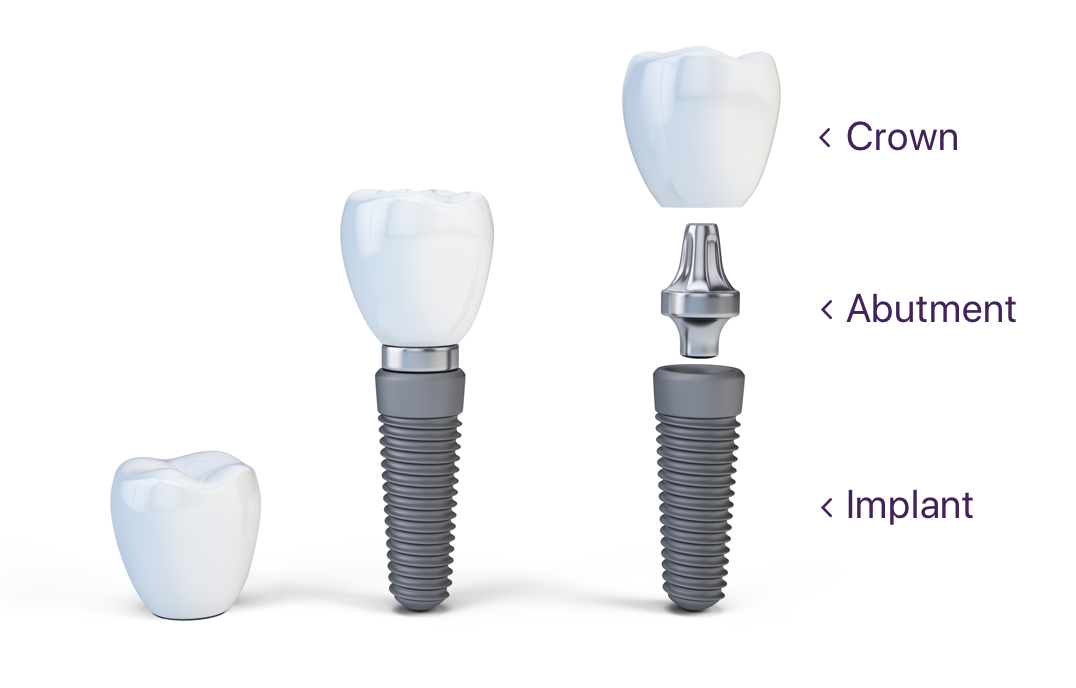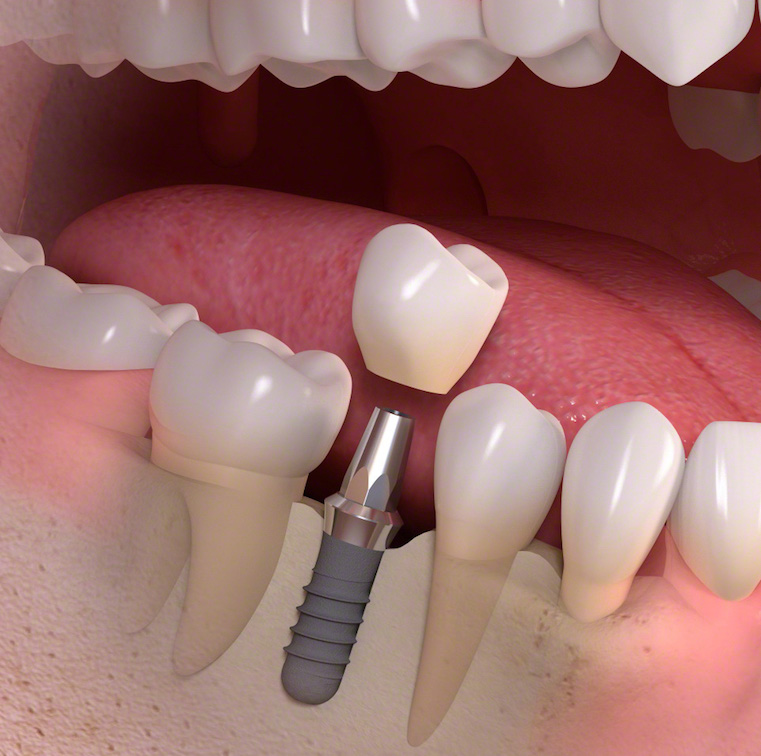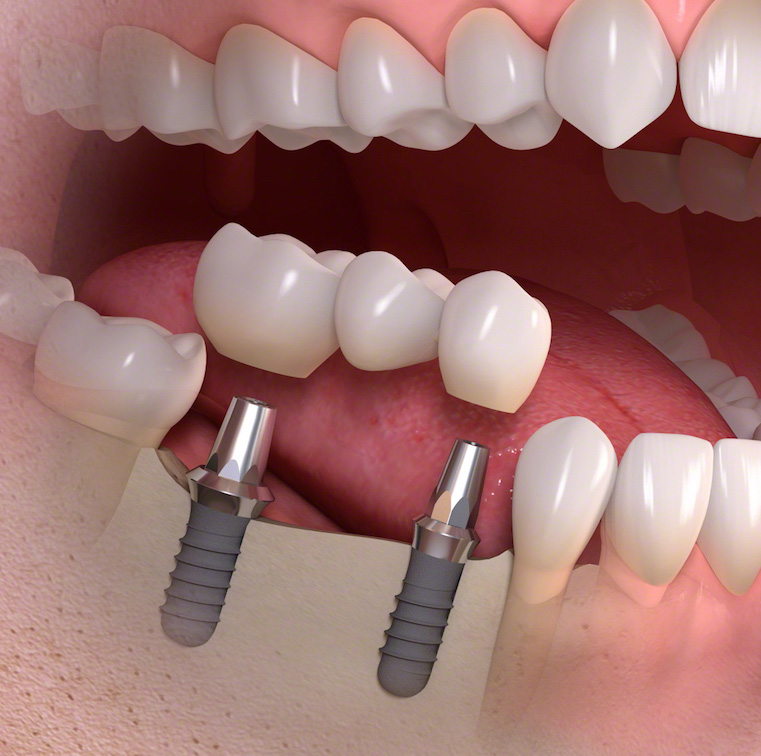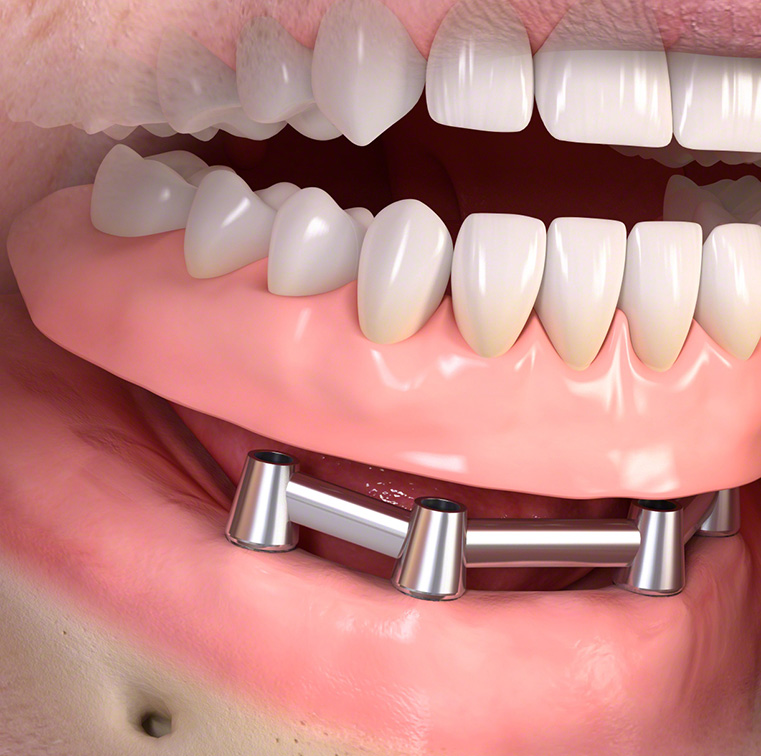Dental Implants in Overland Park
At Ward Periodontics, we are committed to giving you the smile you’ve always wanted. Sometimes the path to the perfect smile includes dental implants.
Dental implants may be a solution for your missing teeth and a way to restore your smile. During this procedure, a screw is placed in the jawbone to support the replacement tooth. It is made of titanium, making the procedure similar in many ways, to knee and hip replacements.
Did you know that the success rate for dental implants falls in the the mid-to-upper 90% range? Each implant is tailored to your needs, allowing it to become a permanent fixture if properly managed.
A CT scan may be required to determine whether there is enough underlying bone to support an implant. Fortunately, this advanced imaging can be completed in our office. If there is not enough bone available, bone grafting may be required prior to or in conjunction with implant placement.
Contact us today at (913) 563-7400 to get started.

Parts of a dental implant
- Crown: the tooth-colored restoration.
- Abutment: a connecting piece that attaches to the implant and sticks up through the gum. The crown is placed on the abutment.
- Implant: a titanium screw that is placed in the jaw.
Types of Implant Procedures
- Immediate Implant Placement
- Bone grafting
- Sinus lifts
- Dental implant placement
- Full mouth rehabilitation
- Implant maintenance
- Implant repair
We are happy to explain the details of these procedures at your initial visit.
Are dental implants right for me?
Dental implants may be a great solution for your missing teeth. Here are reasons to consider dental implants as part of your overall dental care:
- The success rate for dental implants is high.
- Implants do not get cavities.
- Implants do not require treatment of teeth next to the implant site like a dental bridge.
- Implants are “fixed” in place and do not come in and out of your mouth.
- An implant looks and feels like a natural tooth.
- Implants can help preserve your jawbone over time.
- An implant can be used to restore one tooth or an entire smile.
Reasons you might not be a
good dental implant candidate
- You have uncontrolled periodontal disease (an infection that causes gum and bone loss).
- You have systemic medical conditions that compromise your bone health or ability to heal properly.
- You have uncontrolled diabetes.
- You are not willing to commit to the required maintenance of a dental implant.
- You don’t have the bone volume necessary for dental implant placement. Many times this can be overcome with bone grafting techniques.
- You are too young. You must be fully grown to be a candidate for dental implants. Age 18 for females and 21 for males.
The typical timeline for implant placement is as follows:
- Extraction of tooth to be replaced with bone preservation.
- Healing period of 8-12 weeks for bone growth and development.
- Placement of the implant “screw” portion.
- Healing period of 8-12 weeks for development and fusion of bone to the implant surface.
- Restoration of the implant(s) with crown, bridge or denture by your dentist.


